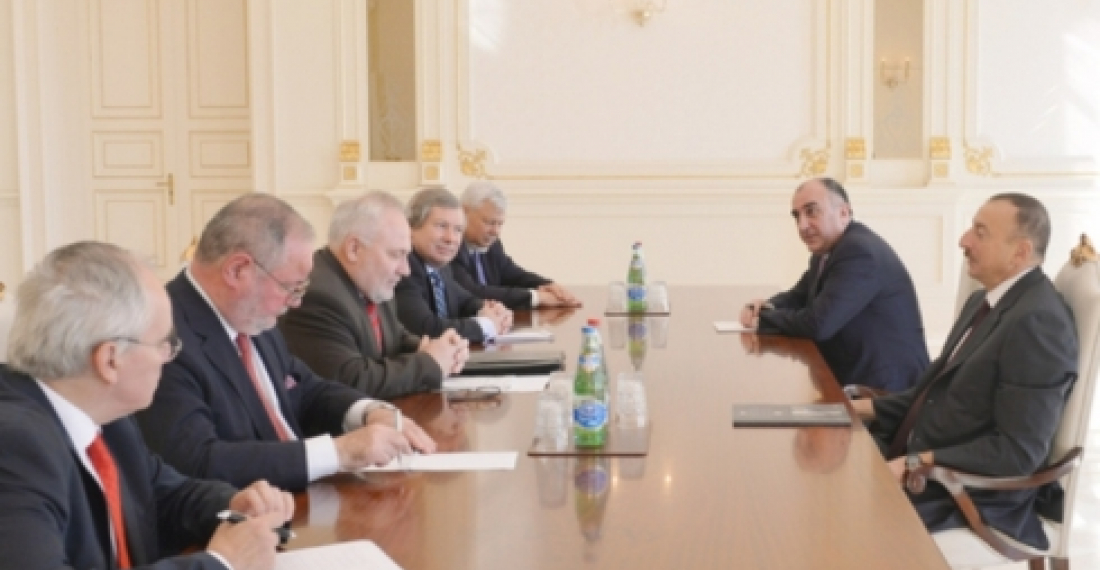The President of Azerbaijan Ilham Aliyev has received the co-chairs of the OSCE Minsk Group Igor Popov (Russia), James Warlick (USA), Jacques Faure (France). Also present were Pierre Andrieu, the new co-chairman from France who will replace Ambassador Faure in the next days, as well as the special representative of the Swiss OSCE chairman-in-office, Andrzej Kaspzyk.
The website of the Azerbaijani President said that the sides "exchanged views on the current state and prospects for negotiations to resolve the Armenian-Azerbaijani conflict over Nagorno-Karabakh."
Earlier this week the co-Chair of the Minsk Group were in the Swiss capital Bern, where they participated in an informal exchange of views with leading experts on the South Caucasus hosted by the Swiss Government. Senior Swiss diplomats also attended the meeting which was off the record. A source however told commonspace.eu that at the meeting in Bern the co-Chair were challenged on several aspects of their approach to the conflict and encouraged to adopt bolder measures in their efforts to break the current impasse, and in order to help bring the sides to the next step of negotiations.
source: commonspace.eu
photo: The co-Chair of the OSCE Minsk Group at their meeting with president Aliev of Azerbaijan on Saturday, 31 May 2014. (picture courtesy of the press Service of the president of Azerbaijan).







